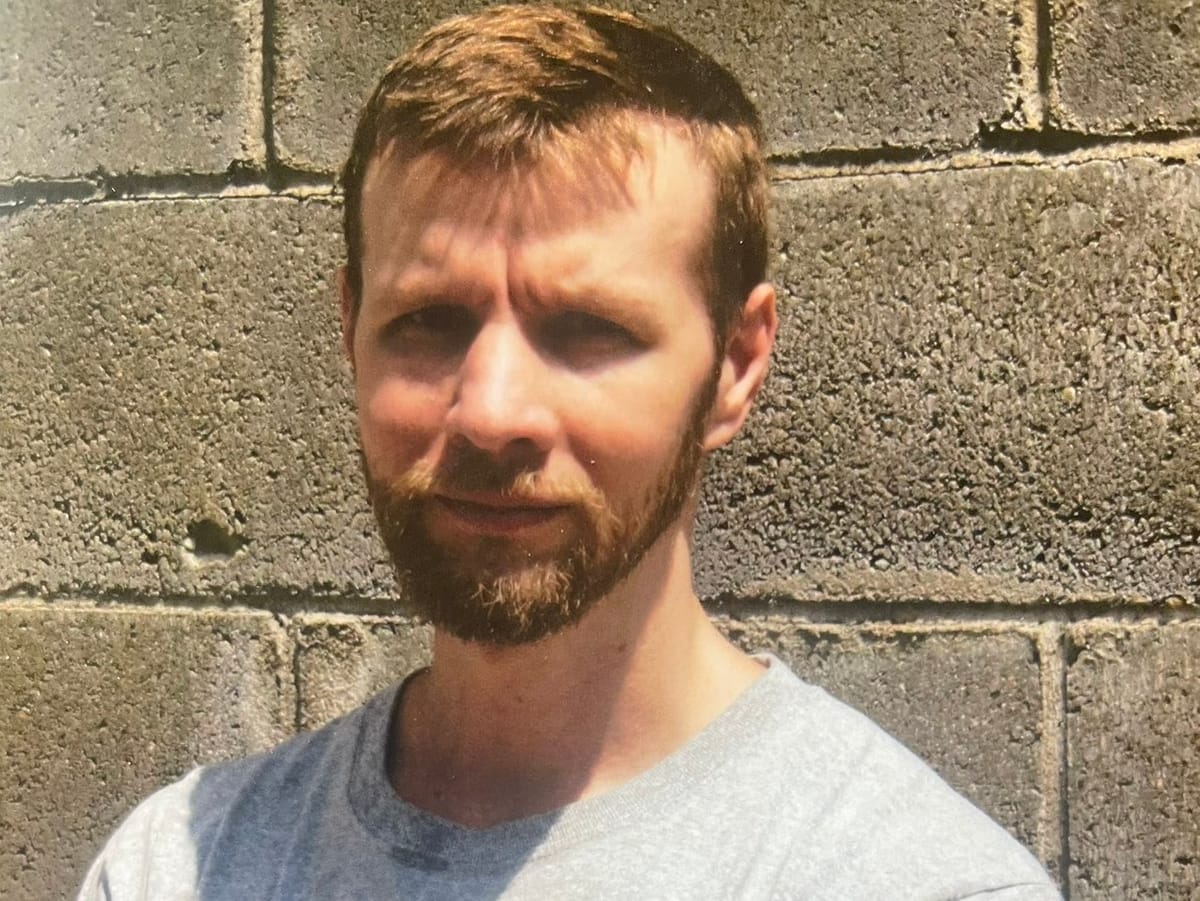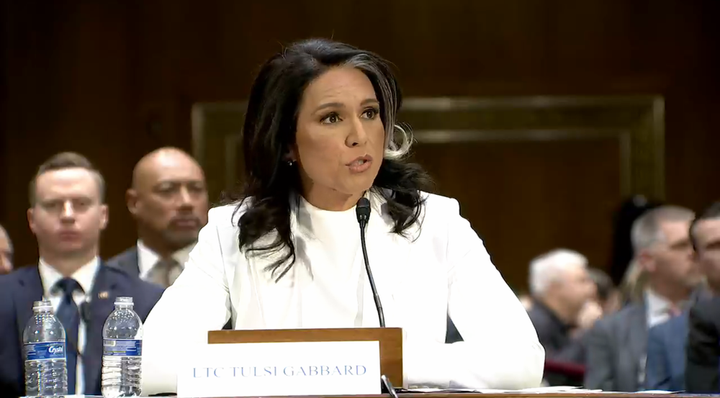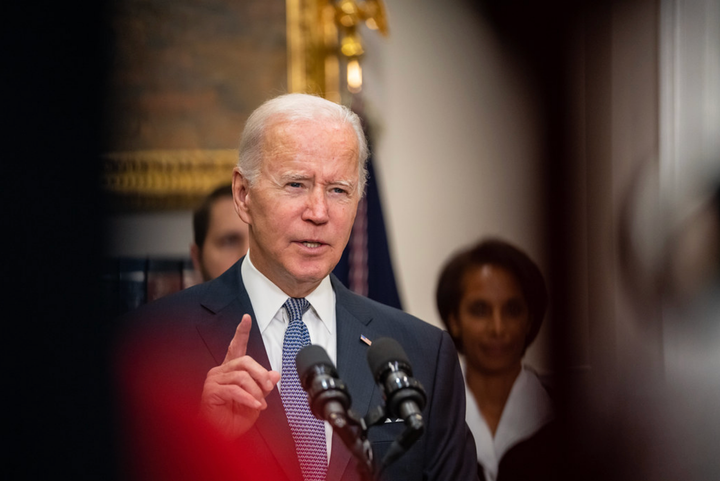Drone Whistleblower Subjected To Harsh Confinement Finally Released From Prison
Daniel Hale's case was part of a continuation of the U.S. government's war on whistleblowers under President Joe Biden

Support independent journalism on whistleblowers, press freedom, and government secrecy. Become a subscriber of The Dissenter.
Drone whistleblower Daniel Hale was released from prison in February after spending 33 months in some of the harshest confinement conditions ever imposed on a person for disclosing classified information to the press.
Hale remains in federal custody but is living in home confinement until July.
Though President Donald Trump’s Justice Department indicted Hale, his case became the first major Espionage Act conviction secured by prosecutors under President Joe Biden.
In an opinion article for Al Jazeera English, Hale marked his freedom by weighing in on the decision by Special Counsel Robert Hur to not recommend charges against Biden for mishandling classified information.
Hale noted the similarities between what he did and what Hur said Biden did and powerfully illustrated the disparate treatment that he survived.
Both Biden and Hale kept classified information “outside of a secure facility” at their homes and offices. Both spoke to a reporter about the information. Both expressed concerns about official United States policy, with Biden objecting to the 2009 “surge” in Afghanistan and Hale objecting to the “consequences” of prolonging the war.
“Biden [was] let off the hook because he did not mean any harm,” Hale wrote. “In contrast, the government’s pre-trial motions in my case argued that I not be allowed to present evidence of what it called my ‘good motives.’”
“Afraid my motives might make me appear too sympathetic to a jury, I—like every other whistleblower before me—was rendered effectively defenseless because of a legal technicality in the way the law is written. Given no other choice, I was forced to plead out to avert a costly, unwinnable trial,” Hale recalled.
Hale was a signals intelligence analyst in the U.S. Air Force. He was deployed to Afghanistan and stationed at Bagram Air Base, and Hale later worked as a contractor for a firm known as Leidos. His contracting job gave him access to documents on the U.S. military’s drone program, which he shared with journalist and Intercept co-founder Jeremy Scahill.
Documents from the 2010s, which Hale revealed, brought attention to the sheer amount of civilian deaths caused by “targeted” killing operations. For example, during “one five-month period" of Operation Haymaker in northeastern Afghanistan, “nearly 90 percent of the people killed in airstrikes were not the intended targets.”
Hale also released a “watchlisting guidance” document that showed “more than 40 percent” of the people in the U.S. government’s database of terrorism suspects had “no recognized terrorist group affiliation.” The document helped Muslim Americans clear their names and force the government to remove them from the no-fly list.
On March 31, 2021, Hale pled guilty to one count of violating the Espionage Act. The U.S. Justice Department had him jailed at the Alexandria Detention Center until he was sentenced to 45 months in prison on July 27.
The Bureau of Prisons (BOP) transferred Hale to U.S. Penitentiary Marion in Illinois in October. He was placed in a Communications Management Unit (CMU), which prisoners nicknamed “Little Guantanamo" in the 2000s as it was established by President George W. Bush’s administration for Muslim prisoners.
By putting Hale in a CMU, he was effectively cut off from the support network that came to his aid during his prosecution. The prison could prevent him from writing articles for publication or retaliate against him if he gave any journalists permission to publish his writing.
Noor Mir, a close friend and member of his support team, said in December 2021 that his communications were “severely limited.” Mir was his only contact during the first months that he was in prison.
Hale was only permitted two 15-minute calls per week and anyone he contacted had to be approved by the BOP. All phone calls were monitored in real time by the FBI, and any letters or reading material sent to him were scanned.
I wrote a couple letters to Hale. A copy of my first letter, which I mailed in November 2021, was not shared with him until nearly a year later. I received a reply from Hale before the end of 2022.
In early 2023, I sent a second letter. I have no idea if Marion prison administrators shared that letter with Hale.
I frequently shared articles with CIA whistleblower John Kiriakou while he was incarcerated to help him maintain a connection to the outside world, and every so often, I had an opportunity to forward some of my reporting on whistleblowers and the government's latest Espionage Act prosecutions to Hale.
Until Pentagon Papers whistleblower Daniel Ellsberg was gravely ill from pancreatic cancer, Hale spoke with Ellsberg every Sunday. Ellsberg was a “confidant, mentor, and moral compass on the darkest of days,” according to Hale’s support network.
Sadly, Ellsberg died before Hale was released from prison. His incarceration made it impossible for Hale to join fellow whistleblowers in paying tribute to the godfather of whistleblowers when his family organized a memorial event.
Since Hale was sentenced to prison, the Justice Department has intensified the government's ability to wield the Espionage Act to enforce secrecy.
IRS whistleblower Charles Littlejohn was severely punished for revealing Trump's tax returns to the New York Times. Joshua Schulte, who was found guilty of providing the Vault 7 materials to WikiLeaks, received a 33-year prison sentence for leaking that included a terrorism enhancement.
The Justice Department has also ignored calls from lawmakers, journalists, and human rights advocates from around the world, who have demanded that prosecutors end the government's dangerous case against WikiLeaks founder Julian Assange.
On February 25, Aaron Bushnell, a 25-year-old U.S. Air Force member, protested Israel’s genocidal violence in Gaza and self-immolated in front of the Israeli embassy in Washington, D.C. Hale expressed his solidarity a day after Bushnell sacrificed himself.
“Both Aaron and I share a commonality that is more widely spread throughout the American military than the ruling class would have you believe,” Hale declared. “The weight of guilt for the many crimes against humanity perpetrated by our own government hangs heavy over every veteran.”
“Aaron succumbed to the most pervasive wound in the U.S. military—a moral wound.”
“I urge each of you to honor his memory by going and looking at his final moments uncensored. Aaron wanted everyone to witness the horror of human beings consumed by flames, lest we continue to ignore the reality of what our bombs are doing to the bodies of Gazan children by the tens of thousands,” Hale concluded.




Comments ()